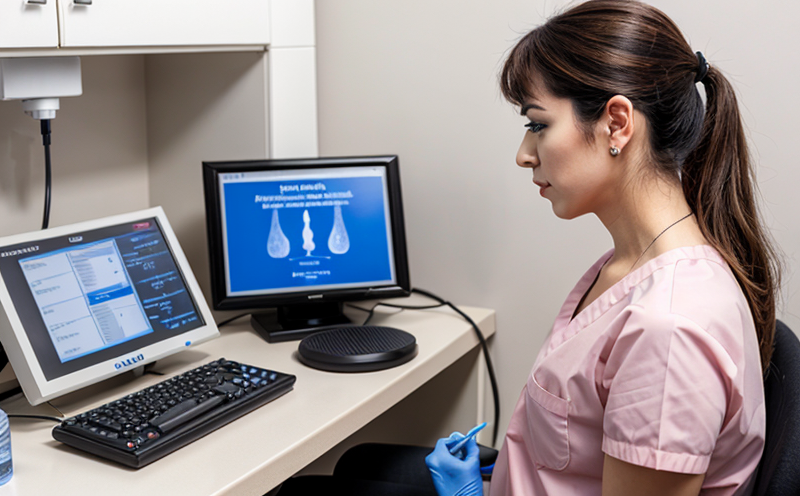Vasopressin Testing in Animal Hydration and Kidney Research
The testing of vasopressin plays a crucial role in understanding hydration status, renal function, and stress responses in animal models. This service is essential for researchers aiming to explore the physiological mechanisms underlying fluid balance, electrolyte homeostasis, and endocrine regulation.
Vasopressin, also known as antidiuretic hormone (ADH), is a key regulatory peptide that modulates water reabsorption in the kidneys. Its precise measurement can provide insights into various conditions such as dehydration, hyperhydration, and osmotic stress. The importance of this test lies in its ability to assess not only the immediate response but also the long-term effects on renal function and electrolyte balance.
In the context of clinical and healthcare testing for endocrinology & hormone research, vasopressin plays a pivotal role in evaluating the effectiveness of treatments aimed at restoring normal hydration levels. This service is particularly valuable in preclinical studies where understanding the impact of experimental interventions on fluid dynamics is critical.
The process involves collecting blood samples from animals under controlled conditions to ensure accurate measurement. Specimen preparation includes immediate refrigeration and minimization of handling time to prevent any degradation or alteration of vasopressin levels. The test utilizes highly sensitive immunoassay techniques, which are capable of detecting even small changes in vasopressin concentration.
For quality managers and compliance officers, this service ensures that the research adheres to strict standards for accuracy and reliability. Compliance with international standards like ISO 15195-2:2013 is crucial to validate the test results. This service also supports R&D engineers in developing new treatments or refining existing ones by providing precise data on vasopressin dynamics.
The instrumentation used for this test includes advanced immunoassay analyzers that provide rapid, accurate, and repeatable measurements. The acceptance criteria are stringent to ensure the reliability of the results. Compliance with these criteria is essential for maintaining the integrity of the research findings.
| Parameter | Description |
|---|---|
| Vasopressin Concentration Range | 0.1 - 5 ng/mL |
| Sensitivity | ± 3% of true value |
| Repeatability | ≤ 2% CV within-run |
The test is also useful in evaluating the efficacy of interventions aimed at restoring normal vasopressin levels, such as fluid replacement therapy or diuretics. Understanding these dynamics can lead to more effective treatments for conditions like diabetes insipidus and renal failure.
In conclusion, vasopressin testing in animal models is a critical tool for researchers in the field of endocrinology and kidney research. It provides valuable insights into the physiological processes involved in fluid balance and electrolyte homeostasis, supporting both basic science and translational research efforts.
Industry Applications
| Application | Description |
|---|---|
| Preclinical Research | Evaluating the impact of experimental treatments on vasopressin dynamics. |
| Vasopressin Dynamics in Diabetes Insipidus | Studying the role of vasopressin in the pathophysiology and treatment of diabetes insipidus. |
| Electrolyte Homeostasis in Kidney Disease | Analyzing how changes in vasopressin affect electrolyte balance in kidney disease models. |
Vasopressin testing is integral to a wide range of applications in preclinical research, particularly those focused on understanding the role of vasopressin in fluid and electrolyte homeostasis. This service supports researchers in their quest to develop new treatments for conditions like diabetes insipidus and renal failure.
Why Choose This Test
- Precision: Utilizes advanced immunoassay techniques for accurate measurement of vasopressin levels.
- Reliability: Rigorous acceptance criteria ensure consistent and reliable results.
- Compliance: Meets international standards like ISO 15195-2:2013, ensuring regulatory compliance.
- Efficiency: Provides rapid turnaround times, enabling timely analysis of experimental outcomes.
- Sensitivity: Detects even small changes in vasopressin concentration, providing valuable insights into dynamic processes.
- Support for Research: Assists researchers in validating the efficacy of treatments aimed at restoring normal hydration and electrolyte balance.
The precision and reliability of this test make it an essential tool for researchers working on endocrine regulation, fluid dynamics, and electrolyte homeostasis. Compliance with international standards ensures that the results are valid and can be relied upon in both preclinical research and translational medicine.





